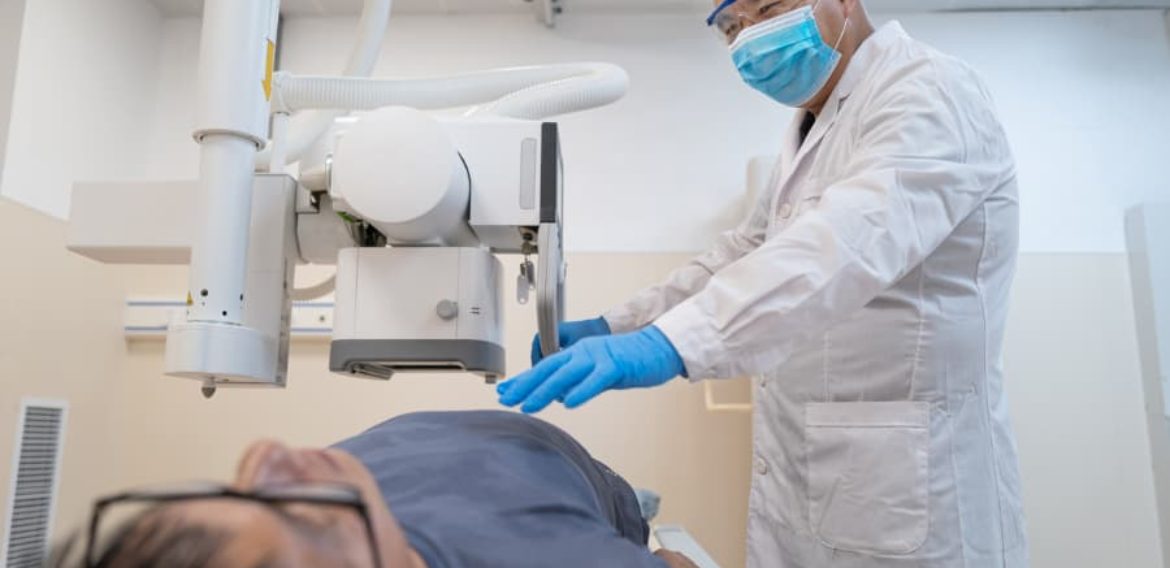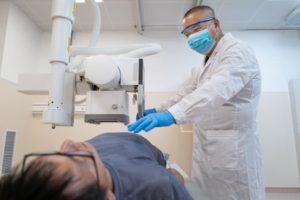What Do Radiologic Technologists Do? A Typical Day on the Job
Radiologic technologists work in hospitals, outpatient clinics, medical practices, surgery centers, and other healthcare facilities. In addition, technologists may work in a variety of imaging modalities, such as: general radiography, special procedures, computed tomography (CT), mobile radiography, and mammography. In Oak Lawn, IL, and the greater Chicago area, students can earn an associate of applied science degree in radiologic technology at Northwestern College. Here’s a look at some of the daily routines and practices that all radiologic technologists perform.
Direct Patient Care
As with every job title in healthcare, the radiologic technologist provides care to their patients. As they work through their daily schedule, technologists must approach each new patient with care and professionalism. They must treat the whole patient, not just the body part which has been ordered. To assist patients in feeling comfortable and acknowledged, radiologic technologists must be good communicators. They must greet patients and verify patient identity, confirm the correct examination has been ordered, explain the procedure, and partner with physicians. They answer questions calmly and help patients relax as much as possible.
Direct patient care also includes the following responsibilities:
Protection from Radiation
Radiologic technologists are responsible for protecting the patient, members of the patient care team, and themselves from harmful radiation. Depending on the imaging modality, this is done by methods such as placing protective shields on patients, stepping out of the room, and reducing the amount of radiation through x-ray beam restrictions.
Administering Medications
Sometimes patients must drink contrast fluid or have contrast media injected. There may be other medication procedures that patients must follow before and during the procedure. When the procedure requires it, the radiologic technologist explains how the medication aids the imaging process, reviews lab reports and physician’s orders, administers the contrast material if necessary, and makes sure the patient is handling it well. No matter the protocol, the technologist must stay in touch with how the patient is handling any medication and the procedure itself.
Positioning the Patient
The goal of any x-ray examination is to image a particular part of the patient’s anatomy. The radiologic technologist positions the patient so that a clear, useful image is obtained. This often involves touching and moving the patient, which must always be handled with great care and sensitivity. Informing the patient when they are about to be touched, positioning and repositioning as gently as possible, and acting with professional respect, are everyday duties of the radiologic technologist.
Equipment Operation
The radiologic technologist must understand all aspects of the required examination such as: locating the exact area of interest, identifying the quality of the image, and knowing departmental protocols. If there are questions, they must be asked of the healthcare team before the imaging process has begun. As the imaging progresses, views are shared with the physicians to ensure they approve the images. Often there is some back-and-forth communication between radiologic technologists and the radiologists who will read the image for the patient’s chart.
Maintenance and Sterilization
The radiologic technologist works with equipment that must be kept in good condition. It is valuable property and crucial to the health of many patients. In some modalities performing regular maintenance and testing are important parts of the radiologic technologist’s day. In addition, surfaces must be thoroughly cleaned and sanitized between sessions. In general, maintaining equipment and keeping the imaging area clean is an important aspect of the technologist’s job.
Discover Whether a Career in Radiography Is Right for You
If you like working directly with patients, as well as operating and maintaining equipment, the role of the radiologic technologist may be right for you. In Oak Lawn, IL, and the greater Chicago area, Northwestern College offers an associate of applied science degree in radiologic technology. For more information, contact Northwestern College.


